Best Healthy Diet for Large Breed Dogs
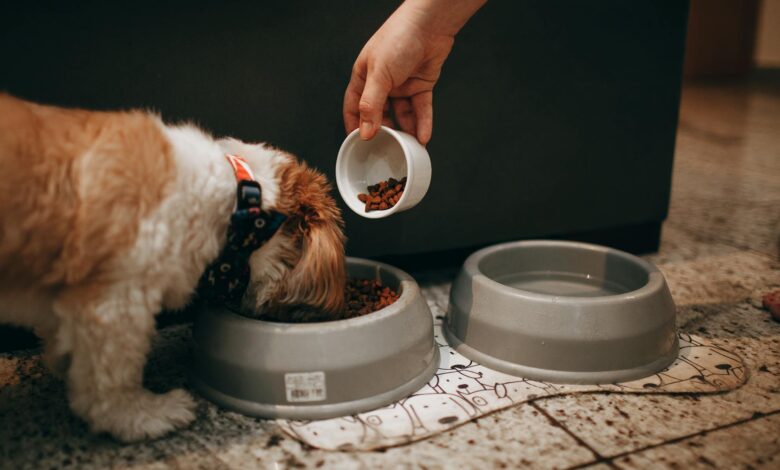
Large breed dogs, such as German Shepherds, Great Danes, Labrador Retrievers, and Saint Bernards, require a well-balanced diet to maintain optimal health, energy, and longevity. Their nutritional needs differ significantly from those of small and medium-sized breeds due to their rapid growth, higher risk of joint problems, and unique metabolic rates. In this comprehensive guide, we will explore the essential components of a healthy balanced diet for large breed dogs, recommended feeding practices, and additional tips for maintaining their overall well-being.
Table of contents
- Understanding Nutritional Needs of Large Breed Dogs
- Feeding Guidelines for Large Breed Dogs
- Special Considerations for Large Breed Dogs
- Best Commercial Dog Foods for Large Breed Dogs
- Homemade Diet for Large Breed Dogs
- Supplements for Large Breed Dogs
- Common Dietary Issues in Large Breed Dogs
- How Much Quantity is Required at Different Life Stages
- Healthy Diet for Large Breed Dogs
Understanding Nutritional Needs of Large Breed Dogs
1. Protein Requirements
Protein is the foundation of a healthy diet for large breed dogs. It plays a crucial role in muscle development, tissue repair, and immune system function.
- Recommended Protein Sources: Lean meats such as chicken, turkey, beef, lamb, and fish. High-quality commercial dog foods should contain at least 22-26% protein for large breed puppies and 18-22% for adult dogs.
- Protein Supplements: Eggs, cottage cheese, and fish oil can be beneficial additions.
2. Healthy Fats
Fats provide essential fatty acids necessary for skin and coat health, joint lubrication, and energy.
- Recommended Fat Sources: Chicken fat, fish oil, flaxseed oil, and coconut oil.
- Optimal Fat Percentage: Large breed puppies should have a fat content of 8-12%, while adult dogs should maintain a fat intake of 5-8%.
3. Carbohydrates
Carbohydrates supply energy and support digestive health.
- Best Carbohydrate Sources: Brown rice, sweet potatoes, oatmeal, barley, and quinoa.
- Avoid: Excessive fillers like corn, soy, and wheat, which may cause allergies and digestive issues.
4. Essential Vitamins and Minerals
Large breed dogs need a balanced intake of vitamins and minerals to maintain strong bones, a robust immune system, and overall health.
- Calcium & Phosphorus: Crucial for bone development and preventing skeletal issues. Found in dairy products, fish, and green leafy vegetables.
- Glucosamine & Chondroitin: Supports joint health, particularly in breeds prone to hip dysplasia.
- Vitamin A: Supports vision and immune function (found in carrots and sweet potatoes).
- Vitamin E & C: Act as antioxidants to support skin, coat, and immune health.
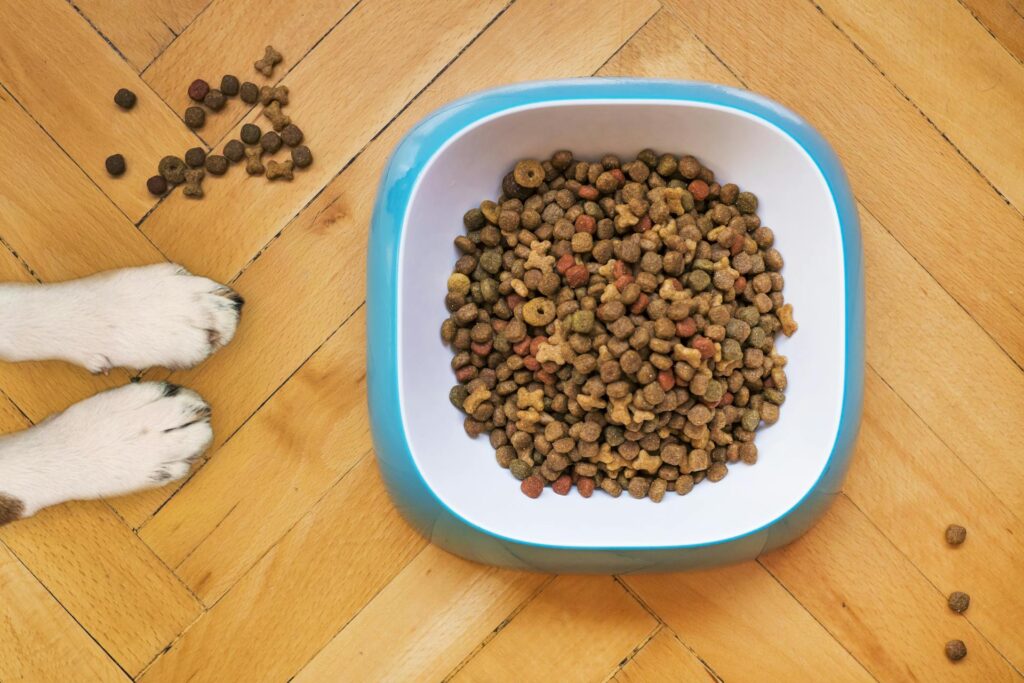
Feeding Guidelines for Large Breed Dogs
1. Puppy Stage (8 Weeks – 18 Months)
- Feed a high-quality large-breed puppy formula with controlled calcium and phosphorus levels.
- Provide 3-4 meals per day to prevent rapid growth that can lead to skeletal disorders.
- Ensure food is rich in DHA (found in fish oil) for brain development.
2. Adult Stage (18 Months – 7 Years)
- Transition to a well-balanced adult large-breed formula.
- Feed twice a day to maintain a healthy metabolism and avoid bloating.
- Monitor calorie intake to prevent obesity.
3. Senior Stage (7+ Years)
- Opt for senior dog food rich in joint-supporting nutrients like glucosamine and omega-3 fatty acids.
- Reduce calorie intake if the dog becomes less active to avoid weight gain.
- Provide easily digestible foods to support gastrointestinal health.
Special Considerations for Large Breed Dogs
1. Avoid Overfeeding
Large breeds are prone to obesity, which can exacerbate joint problems. Use portion control and measure meals properly.
2. Preventing Bloat (Gastric Dilatation-Volvulus)
Bloat is a life-threatening condition that affects large breed dogs. To minimize risk:
- Feed smaller meals throughout the day instead of one large meal.
- Avoid vigorous exercise right after eating.
- Use slow-feeder bowls to prevent rapid eating.
3. Hydration
Adequate hydration is crucial for digestion, metabolism, and joint lubrication. Always provide fresh, clean water and encourage regular drinking.
Best Commercial Dog Foods for Large Breed Dogs
- Royal Canin Large Breed Adult – Specifically formulated for large breeds with joint-supporting nutrients.
- Blue Buffalo Life Protection Large Breed Formula – Contains real meat, whole grains, and antioxidants.
- Hill’s Science Diet Large Breed Dog Food – Veterinarian-recommended formula for joint and immune health.
- Wellness CORE Large Breed Formula – High-protein, grain-free option for active dogs.
- Nutro Ultra Large Breed Dog Food – Features lean proteins and superfoods for balanced nutrition.
Homemade Diet for Large Breed Dogs
For owners who prefer homemade diets, ensure meals contain the right balance of protein, fats, carbohydrates, and essential vitamins.
Example Recipe:
- 2 lbs lean chicken or turkey (cooked and shredded)
- 1 cup brown rice
- ½ cup sweet potatoes (cooked and mashed)
- 1 tbsp flaxseed oil
- ½ cup carrots (finely chopped)
- ½ cup peas
- 1 tsp fish oil (for omega-3s)
- A pinch of turmeric (anti-inflammatory benefits)
Preparation:
- Cook the meat thoroughly and shred it.
- Cook rice and sweet potatoes until soft.
- Mix all ingredients together and store in meal-sized portions.
Supplements for Large Breed Dogs
While a well-balanced diet should provide most nutrients, supplements can be beneficial.
- Fish Oil: Supports joint health, brain function, and skin condition.
- Probiotics: Aid digestion and gut health.
- Glucosamine & Chondroitin: Essential for joint protection.
- Multivitamins: Fill any potential nutritional gaps in the diet.
Common Dietary Issues in Large Breed Dogs
1. Food Allergies
Common allergens include beef, dairy, wheat, and chicken. Symptoms include itching, digestive issues, and ear infections.
2. Digestive Sensitivities
Some large breeds have sensitive stomachs. Avoid foods with artificial additives and opt for easily digestible ingredients.
3. Joint Health Concerns
Due to their size, large breed dogs are more prone to arthritis and joint problems. Ensuring a diet rich in joint-supporting nutrients is vital.
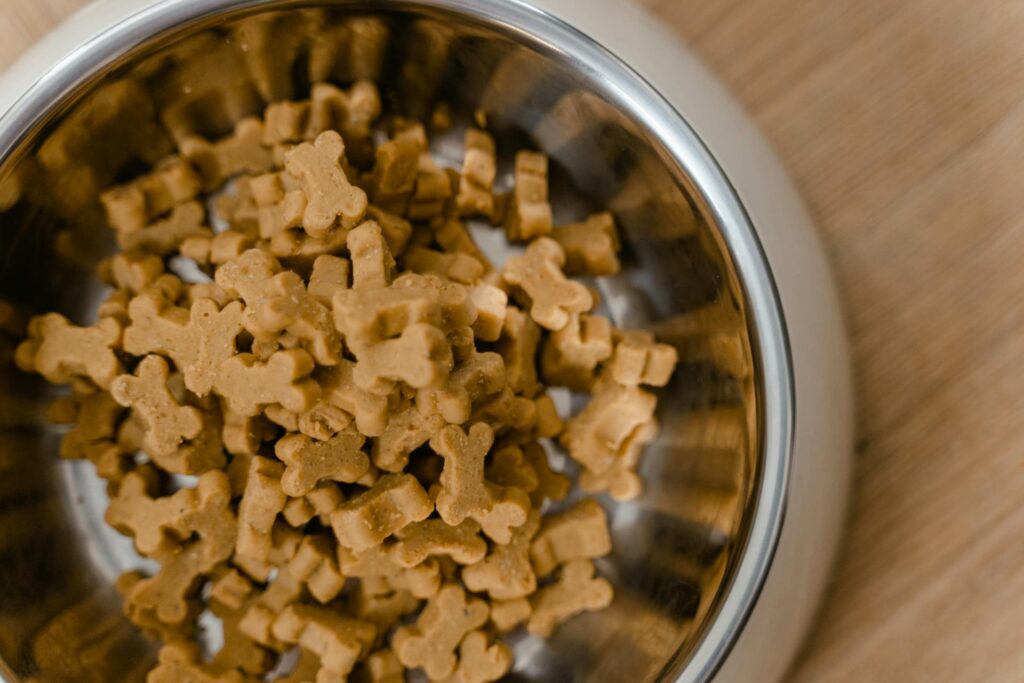
How Much Quantity is Required at Different Life Stages
- Puppies (8 weeks – 6 months): 3-4 meals per day, approximately 4-5 cups depending on breed size.
- Juvenile Dogs (6 months – 18 months): 3 meals per day, around 3-4 cups per meal.
- Adult Dogs (18 months – 7 years): 2 meals per day, 4-6 cups per day depending on activity level.
- Senior Dogs (7+ years): 2 meals per day, 3-5 cups per day with adjustments for weight management.
Healthy Diet for Large Breed Dogs
Providing a healthy balanced diet for large breed dogs involves selecting high-quality proteins, healthy fats, digestible carbohydrates, and essential vitamins and minerals. Proper feeding schedules, portion control, and additional considerations like hydration and exercise play a significant role in their well-being. Whether choosing commercial dog food or a homemade diet, ensuring balanced nutrition will support a long, healthy, and active life for your large breed companion.



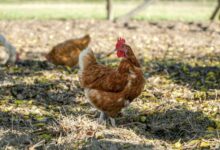



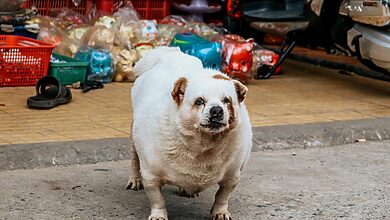
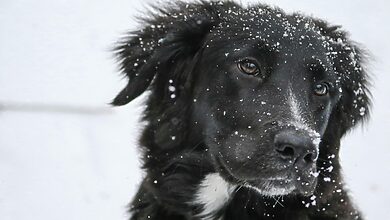
Your piece on managing pet emergency funds was eye-opening. Breaking down the potential costs and savings strategies really helped me budget more effectively. I feel so much more prepared now.